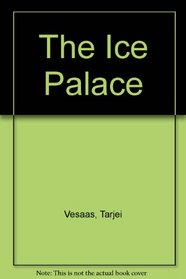Had this elegant short novel not been assigned I most likely wouldn't have finished it, but now that I have read it I'm glad that setting it aside wasn't an option. Vesaas writing style is almost painfully spare, which takes some getting used to, yet once I got into it I kept marveling at the beauty of it. It's as if he set out to write a novel as stark as Norwegian winter itself, all sharp lines and few colors, intense in its subdued grace, frozen in place but ready for the spring thaw. It's as if he knew that if he gave the readers just enough they would create in their minds a world that would meld with the bare bones of the story and they would feel a part of it.
The story itself is rather simple: it follows a girl on the cusp of adolescence grieving the disappearance of a new friend, going through disbelief, acceptance and finally release. It's the elegance of execution and the profound insight into the characters that sets this novel apart. Vessas' children seem innocent and straightforward, and yet their problems are complex and far-reaching. The adults are an interesting combination of contradictions: on one hand they give children plenty of freedom to get through problems on their own and on the other hand it's clear just how concerned they are about the youngsters' welfare. One very special character I didn't expect was nature: Vesaas wove it into the plot so much that eventually the ice gripping the small village feels almost alive, it is certainly just as animated as any of the human characters.
I really want to talk about the details but for the sake of not spoiling the novel I will refrain. Just get it and read it.
The story itself is rather simple: it follows a girl on the cusp of adolescence grieving the disappearance of a new friend, going through disbelief, acceptance and finally release. It's the elegance of execution and the profound insight into the characters that sets this novel apart. Vessas' children seem innocent and straightforward, and yet their problems are complex and far-reaching. The adults are an interesting combination of contradictions: on one hand they give children plenty of freedom to get through problems on their own and on the other hand it's clear just how concerned they are about the youngsters' welfare. One very special character I didn't expect was nature: Vesaas wove it into the plot so much that eventually the ice gripping the small village feels almost alive, it is certainly just as animated as any of the human characters.
I really want to talk about the details but for the sake of not spoiling the novel I will refrain. Just get it and read it.




